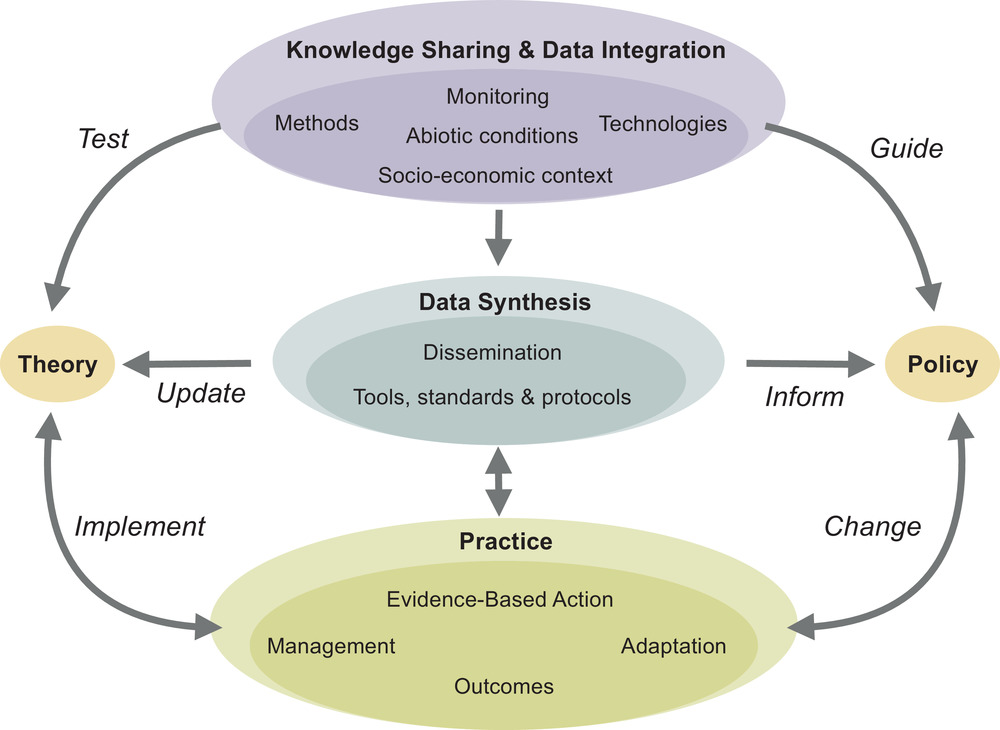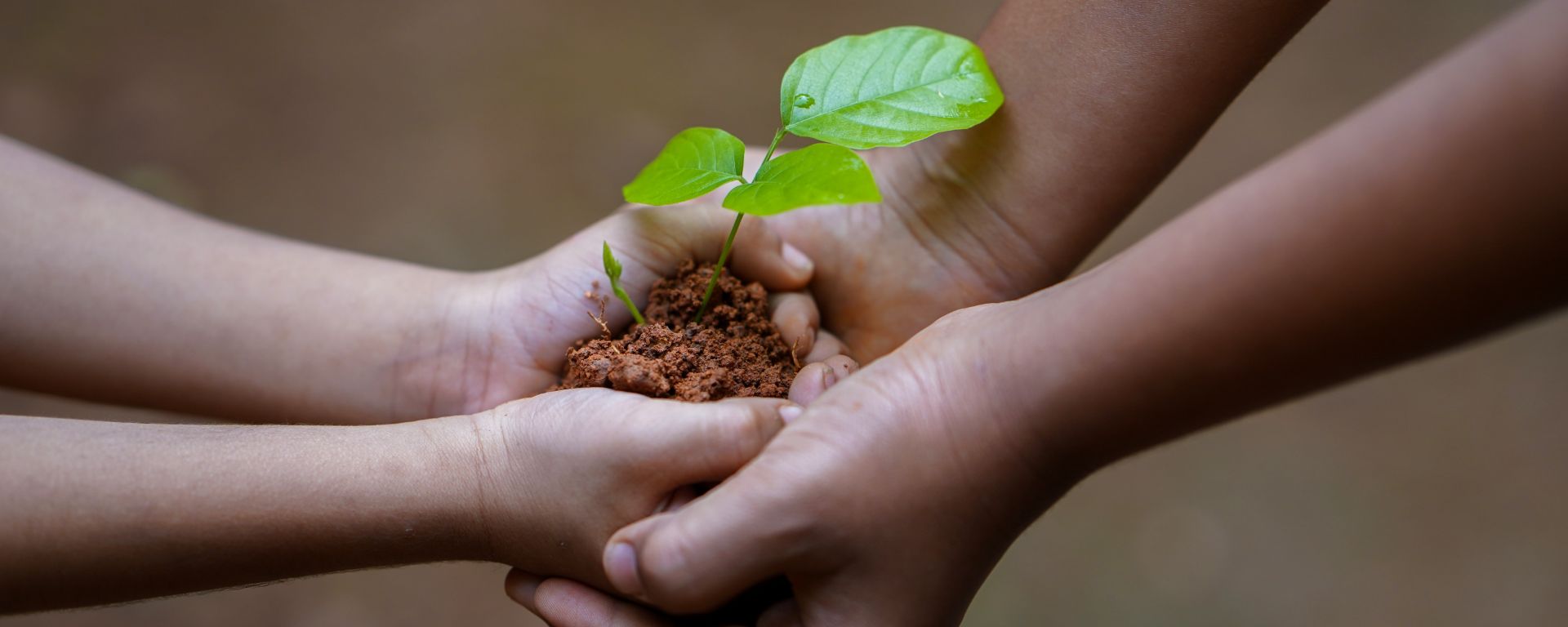As part of our cross-society Special Feature on the UN Decade on Ecosystem Restoration, Pia Bradler and author Emma Ladouceur discuss the latest Perspective article calling for greater knowledge-sharing to inform successful restoration practice.
In our latest article in Ecological Solutions and Evidence, we call for greater restoration knowledge sharing as part of the UN-declared Decade on Ecosystem Restoration. Shared knowledge includes results from case studies and projects regardless of the outcome, key lessons learned, local knowledge gained, and scientific monitoring data and associated meta data. Knowledge sharing has the potential to support restoration activities, increase predictive capacity, and feed back into theory, practice and policy to enhance the shared success of unprecedented restoration action taking place during this decade.

Challenges and Opportunities
There still is a lack of clear incentives to motivate researchers and practitioners to share their data and knowledge with each other. For shared success, data sharing should offer a clear two-way exchange of scientist-practitioner collaboration which could inspire platforms to increasingly help to do so.
To encourage this exchange, we propose that for practitioners, data sharing platforms can offer a way of publishing their work that they wouldn’t have considered submitting to a scientific journal. Concurrently, researchers can achieve an applied uptake of their work and increase the impact of their experiments outside of the academic context.
There are still other barriers to easily exchanging information across research and practice, such as the lack of sufficient shared standards for both data and general knowledge sharing. Although open-access tools and standards are becoming more common within ecology and the wider scientific community generally, such as the FAIR guiding principle, existing databases often are not FAIR in that they are not readily interoperable, meaning that a considerable effort is needed to harmonise and standardise the data to synthesise with existing datasets.
Of course, making data interoperable to others is very difficult to do and there is interdisciplinary opportunity and challenge in establishing best practices for this across contexts.
Other important pathways for knowledge exchange include featuring tools, standards, protocols in conferences (through workshops and themed sessions) and through applied journals that are more accessible forums for practitioners.
The Global Restore Project: a knowledge sharing network
The Global Restore Project is one such example aiming to bring together restoration data and make these data open to use to support shared learning.
We are collating data from restoration projects and diverse ecosystems from around the world and already have 158 contributed datasets. These are existing data from previously conducted studies that monitored species-level, fine-scale ecological communities after disturbance. We are collecting these data from sites that have been actively restored, from those that are recovering on their own, and those from undisturbed and disturbed reference sites to use as comparative experimental controls
Knowledge sharing for shared success
Open and integrated restoration knowledge and data can inform, test, and update fundamental theoretical questions. Ecological theory, in turn, can support restoration efforts. Open, raw, fine-scale data, like those collated in the Global Restore Project Database, can be used to identify successful and unsuccessful outcomes across diverse systems and scales, helping to increase the predictive capacity of restoration efforts.
Ecological synthesis can therefore help advance researchers’ and practitioners’ understanding and predictability of restoration outcomes in multiple contexts. We suggest other knowledge sharing examples and resources which we provide in a summary table in our article.
Are you involved in ecological restoration? Here are our recommendations to increase your knowledge sharing contributions.
- Publish restoration project results and exchange knowledge and lessons learned no matter the outcome to normalise variable results
- Contribute raw data and metadata to an open-access global repository, even if it is not published in an academic journal
- Register your restoration project in the Society for Ecological Restoration (SER) Project Database so that others know about your work
- Promote funding opportunities for restoration science and long-term monitoring at large scales
Read the full article: “Knowledge sharing for shared success in the decade on ecosystem restoration” in Issue 3:1 of Ecological Solutions and Evidence.
Discover more articles from our cross-society, cross-journal Special Feature on the UN Decade on Ecosystem Restoration.
